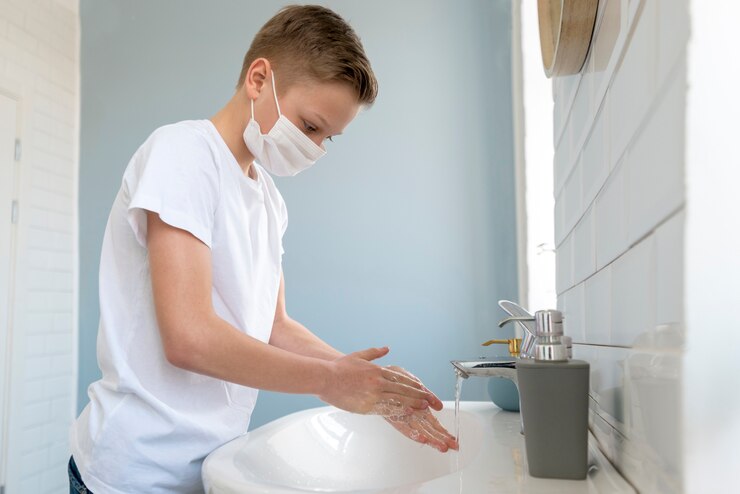Personal hygiene is not just about looking and smelling good; it is fundamental to our overall health and well-being. Good hygiene practices can significantly enhance both physical and mental health, creating a solid foundation for a healthier lifestyle. This article explores key personal hygiene habits that can contribute to improved well-being, especially in the context of health education and hygiene for kids.
The Importance of Personal Hygiene
Maintaining proper personal hygiene is essential for preventing illness and promoting good health. Regular handwashing, bathing, and oral hygiene are simple yet effective practices that can reduce the risk of infections and diseases. For instance, handwashing with soap can significantly lower the transmission of germs, particularly in schools, where children are often in close proximity to one another. By prioritizing hygiene in schools, educational institutions can create a healthier environment for students, ultimately supporting their academic performance and overall development.
Handwashing: The First Line of Defense
One of the most critical personal hygiene practices is handwashing. It’s vital to wash our hands thoroughly with soap and water, especially after using the restroom, before eating, and after touching potentially contaminated surfaces. Teaching kids the proper way to wash their hands—and the importance of doing so regularly—can prevent the spread of germs in schools. Health education programs often emphasize the significance of handwashing in promoting good sanitation practices. When children understand the importance of sanitation and hygiene, they’re more likely to adopt these practices throughout their lives.
Oral Hygiene: A Gateway to Overall Health
Maintaining good oral hygiene is crucial for both physical and mental health. Brushing our teeth twice a day and flossing daily helps prevent cavities, gum disease, and bad breath. Moreover, oral health is linked to our overall well-being; poor oral hygiene can lead to various systemic conditions, including heart disease and diabetes. In schools, promoting oral hygiene practices through health education can lead to improved self-esteem among children and adolescents, positively impacting their mental health.
Regular Bathing and Personal Care
Regular bathing is an essential part of personal hygiene that contributes to our physical health. Bathing helps remove dirt, sweat, and bacteria from our skin, preventing infections and maintaining skin health. This practice is particularly important for active children who might engage in sports or other physical activities that lead to increased sweat and dirt accumulation.
Additionally, personal care routines that include grooming practices—like nail trimming, hair washing, and skincare—can enhance self-confidence. Teaching kids these practices through health and hygiene education can instill lifelong habits that promote their overall well-being.
Proper Nutrition and Hydration
While not traditionally categorized as personal hygiene, nutrition and hydration are crucial for our overall health. A balanced diet rich in fruits, vegetables, whole grains, and lean proteins provides the necessary nutrients for our bodies to function optimally. Staying hydrated is equally important; drinking enough water helps maintain bodily functions and can improve mood and cognitive function.
In schools, integrating nutrition education into health and hygiene programs can teach kids about making healthy food choices. This knowledge empowers them to take control of their health and well-being.
Mental Hygiene: The Overlooked Aspect
Mental hygiene is often overlooked in discussions about personal hygiene, yet it is crucial for our overall well-being. Just as we take care of our physical bodies, we must also prioritize our mental health. Simple practices such as mindfulness, stress management techniques, and open communication about feelings can significantly enhance our mental well-being.
Encouraging children to express their emotions and seek help when needed fosters a supportive environment, particularly in school settings. Mental health education should be a key part of health education in schools to promote awareness and reduce the stigma surrounding mental health issues.
The Role of Schools in Promoting Hygiene
Schools play a pivotal role in promoting hygiene and sanitation among students. By incorporating hygiene education into the curriculum, schools can equip children with the knowledge and skills necessary to maintain good personal hygiene. Programs that focus on the importance of sanitation and hygiene can lead to healthier school environments, reducing illness and absenteeism.
Moreover, hygiene in schools can be enhanced through proper facilities, such as clean restrooms, handwashing stations, and access to clean drinking water. Investing in school sanitation not only improves students’ health but also creates a better learning environment.
Lifelong Habits and Responsibilities
Instilling good hygiene practices in children lays the foundation for lifelong habits. By emphasizing the importance of personal hygiene from an early age, parents and educators can help children develop a strong sense of responsibility for their health and well-being. In addition, participating in hygienist programs can encourage students to explore careers in health and sanitation, fostering a culture of health awareness and responsibility.
Conclusion
Personal hygiene habits are essential for boosting both our physical and mental health. By promoting good hygiene practices—such as handwashing, oral care, regular bathing, and mental hygiene—we can significantly enhance our quality of life. Schools play a crucial role in this endeavor by providing health education and ensuring proper sanitation facilities. Ultimately, the importance of personal hygiene cannot be overstated; it is a vital aspect of health that empowers us to lead healthier, happier lives. By prioritizing hygiene and sanitation, we can create a healthier future for ourselves and generations to come.




